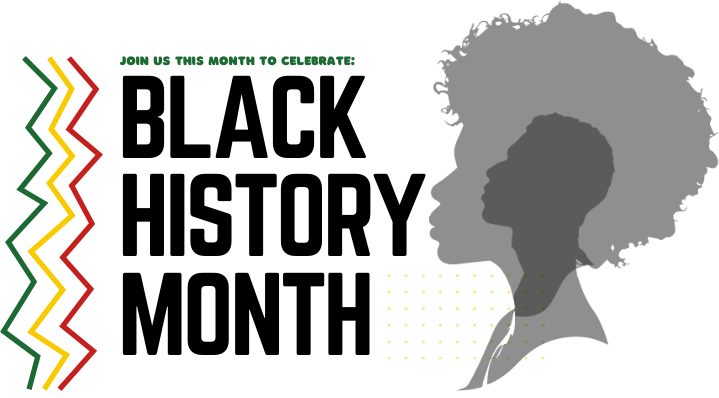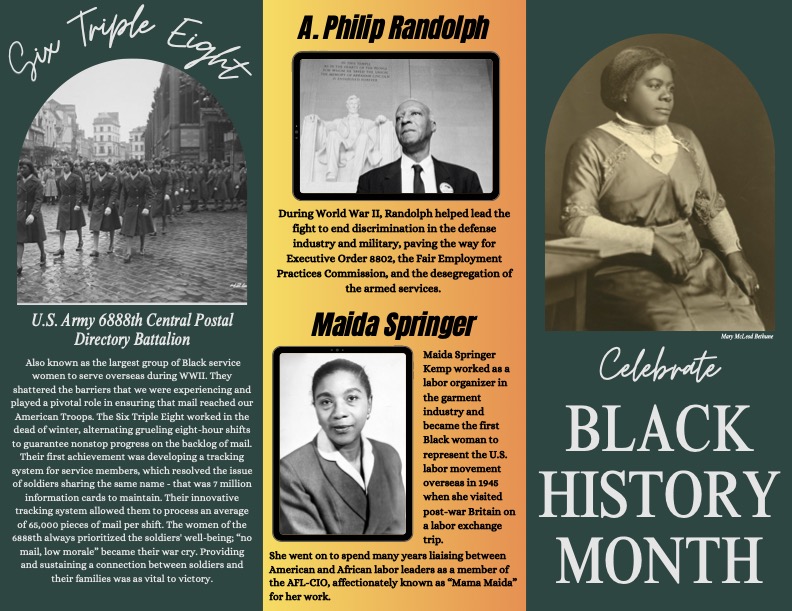Black History Month

Honoring Black History Month
At Skagit Valley College, we are proud to honor and celebrate Black History Month—a time to recognize the rich heritage, achievements, and contributions of Black individuals throughout history and within our own community.
Join us in commemorating this important month through inspiring performances, scavenger hunts and discussions. Together, we celebrate the past, embrace the present, and empower the future.
Check out our event calendar, explore student spotlights, and learn how you can get involved!
Black History Month Scavenger Hunt
Mount Vernon Campus AND Whidbey Island Campus
Join the Black History Month Scavenger Hunt and explore key moments and figures in Black history! Look for five posters placed around each campus, learn from their stories, and submit your answers for a chance to win a swag prize.
📍 How to Participate:
- Find all five posters on your campus.
- Answer the questions on the form by listing a fact from each poster.
- Submit your entry using the correct form:
- Mount Vernon Campus: Submit Here
- Whidbey Island Campus: Submit Here
- WIN A PRIZE
🗓️ Dates: Feb 24-28th

Black History Month has its roots in the early 20th century, emerging from the efforts of historian Dr. Carter G. Woodson, often referred to as the "Father of Black History." Woodson, along with the Association for the Study of Negro Life and History (ASNLH) (now the Association for the Study of African American Life and History, ASALH), sought to ensure that the contributions of Black Americans were recognized and integrated into the broader narrative of American history.
Origins: Negro History Week (1926)
In 1926, Woodson and ASNLH launched Negro History Week, choosing the second week of February to coincide with the birthdays of Frederick Douglass (February 14) and Abraham Lincoln (February 12)—figures deeply connected to Black history and the fight for freedom. The goal was to encourage schools and communities to study and acknowledge Black achievements, countering the widespread neglect of Black contributions in mainstream history.
Expansion to Black History Month (1960s-1976)
During the Civil Rights Movement of the 1960s, interest in Black history grew, fueled by the demand for greater recognition of Black culture, identity, and historical contributions. Black student organizations on college campuses began advocating for an expansion of Negro History Week into a full month.
In 1976, during the U.S. Bicentennial, President Gerald Ford officially recognized Black History Month at the federal level, urging Americans to “seize the opportunity to honor the too-often neglected accomplishments of Black Americans in every area of endeavor throughout our history.” From that point forward, Black History Month became a nationally observed event in the United States.
Global Recognition
The celebration of Black history has since extended beyond the U.S.:
- Canada officially recognized Black History Month in 1995, with February designated as the official month of observance.
- The United Kingdom began celebrating Black History Month in 1987, though it takes place in October.
- Other countries, including Ireland, Germany, and the Netherlands, have also adopted similar observances to recognize Black history and contributions.
Programs and Events

